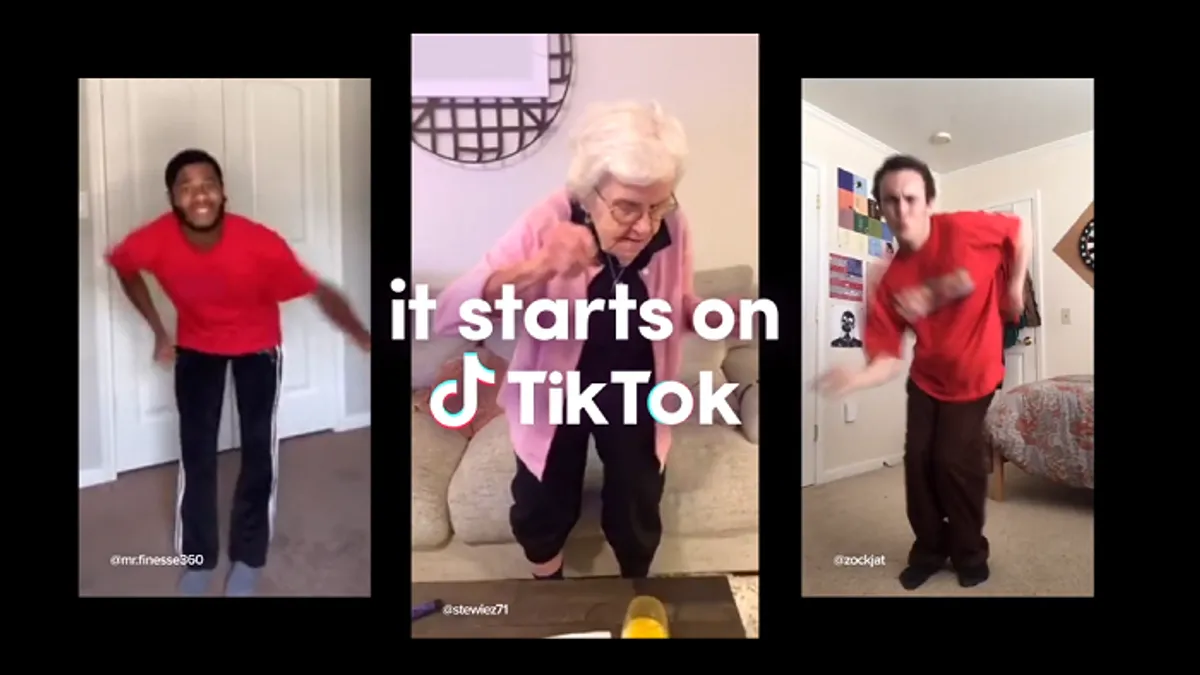Brief:
- TikTok CEO Kevin Mayer resigned as the video-sharing app owned by ByteDance faces an uncertain future in the U.S., the executive announced in an internal letter to employees obtained by CNBC. Vanessa Pappas, TikTok's U.S. general manager, will serve as interim global leader of the platform, per CNBC.
- In the letter, Mayer wrote that the "political environment has sharply changed" of late, which has, in turn, substantially changed his role. He also noted "we expect to reach a resolution very soon" in regards to TikTok's path forward, a potential nod to the platform getting acquired.
- Formerly in charge of Disney's streaming initiatives, Mayer signed on as TikTok CEO on June 1, along with taking on the duties of chief operations officer at ByteDance. During his tenure, he led TikTok's global expansion of sales, marketing, public affairs, corporate development, security, content moderation and legal affairs.
Insight:
The surprise resignation of TikTok's CEO suggests that an acquisition of the platform, which has faced mounting scrutiny from the Trump administration over its parent company's ties to China, could be imminent.
Under increasing political heat and with the potential for new ownership, Mayer's job became markedly different in recent weeks than the one he signed on for just over 100 days ago, as evidenced in his letter to employees. It is not uncommon for leadership at companies to change hands in the lead-up to or aftermath of an acquisition, but Mayer's departure will draw greater speculation as TikTok's sale stands to considerably reshape the social media space.
Mayer, a media veteran who helped get the streaming service Disney+ off the ground in his prior role, was seen as lending new credibility to TikTok, a fledgling video-sharing app whose popularity has exploded in recent years, particularly with young consumers. His hiring, and an adjacent expansion of TikTok's U.S. operations, was also a means for ByteDance to position TikTok as more independent and less subject to the whims of Chinese authorities.
While his stint at TikTok was brief, Mayer also oversaw a noteworthy rounding out of the app's marketing services. In late June, the app unveiled its first global platform for marketers, TikTok for Business — a new sign of maturity mirroring similar offerings from rivals like Instagram. The hub was revealed as part of TikTok's first presentation at the Interactive Advertising Bureau's Digital Content NewFronts, a closely watched stage for digital publishers to pitch brands and agencies for their dollars.
These moves have done little to sway the Trump administration, which has quickly ramped up pressure on ByteDance to sell TikTok's U.S. operations, viewing them as a threat to national-security and economic interests.
Early in August, President Trump issued an executive order that bans U.S. entities from conducting transactions with TikTok or other ByteDance properties starting Sept. 20, which will effectively shut down the tech firm's business in the nation. A week later, Trump issued a separate executive order that demands ByteDance divest TikTok's U.S. operations and any data on U.S. users by Nov. 12, formalizing a ban the president had previously threatened, while giving ByteDance a longer lead time to find an acquirer.
Several large tech companies are angling to nab the mega-popular video app, though the scope of what they would get in a deal still isn't clear given TikTok's complex technological infrastructure. Microsoft remains the top suitor to acquire TikTok, while Oracle, another company predominantly focused on enterprise technology solutions, has also recently expressed interest, and received support from President Trump, who is connected with CEO Larry Ellison. Twitter has also reportedly held talks about merging with TikTok's U.S. operations, though its financial resources would not be able to match those of a company like Microsoft.
As the deadline for a sale looms, TikTok is fighting back. On Monday, the company filed a lawsuit challenging President Trump's executive order enacting a ban, claiming the administration has provided little evidence that the app abuses sensitive user information. TikTok has repeatedly said it does not share data with China and that it safeguards user privacy.
TikTok last week also debuted its first consumer-facing ad campaign in the U.S. Running through Oct. 12, "It Starts on TikTok" shows how the social media app influences "every facet of culture" through its focus on lighthearted, viral-ready videos.















